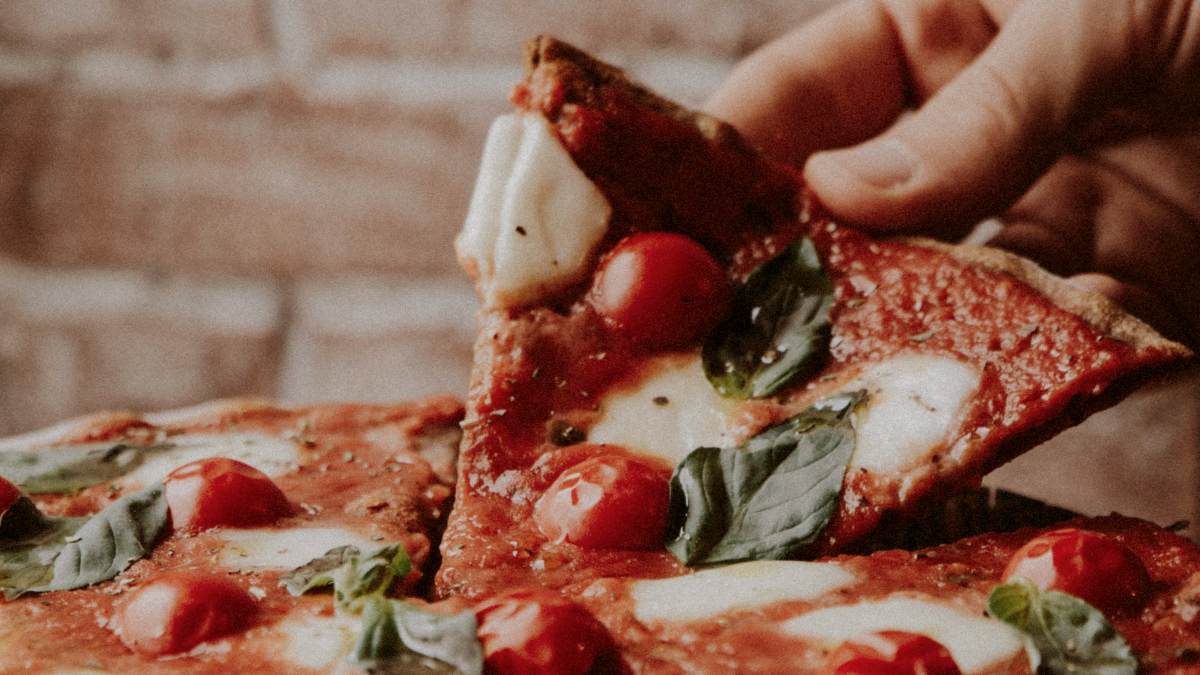
Is Your Cheese Pizza Giving You Nightmares? A Psychologist Explains
Research reveals the curious link between certain food groups and nightmares.

By Mark Travers, Ph.D. | October 16, 2024
Have you ever heard the adage that eating cheese before bed can lead to nightmares? Maybe you've even avoided spicy food to evade a bad dream. If so, you're not alone.
Research published in Frontiers in Psychology examined the link between food consumption and dreaming. Researchers found that, of their 396 participants, 17.8% believed that their food choices influence the kinds of dreams they have, and certain foods, particularly dairy, seem to be repeat offenders.
Researchers found that dairy products were most often associated with disturbing dreams for 44% of participants and bizarre dreams for 39%. Spicy foods followed closely behind, particularly as a trigger for disturbing dreams. Participants also pointed to foods such as starchy items like pasta, sweets and meat as affecting their dream content.
Here are two possible reasons why we associate certain foods with nightmares, according to the study.
1. Food Sensitivity
One potential explanation for the food-nightmare connection is how eating before bed may negatively impact sleep quality, which can, in turn, influence dreaming. Almost half (47%) of participants who believed that food affected their dreams also felt that eating late, in general, contributed to more vivid or strange dreams.
Such individuals also reported more frequent and disturbing dreams, poorer sleep, higher coffee intake, lower levels of intuitive eating and a higher likelihood of emotional eating.
Researchers suggest that the food-nightmare connection might also be due to physiological factors—poor digestion, disrupted sleep or even food intolerances. For instance, some people experience digestive issues such as bloating and cramps after consuming dairy, which could lead to restless sleep and unsettling dreams.
"Sleep disruption is correlated with a number of food items commonly known to induce gastrointestinal symptoms. Many of the physical symptoms of lactose intolerance were reported spontaneously in response to our open-ended question about how eating late at night influences sleep and dreams," the researchers explain.
A heightened sensitivity to certain foods can also make some people more likely to notice the connection between their diet and dreams. For others, it may not be a specific food that impacts dreaming, but rather their body's adverse reaction to that food or to a different life stressor.
While this effect may not be universal, those who are more in tune with their body's reactions may be more likely to connect specific foods to their nightmares.
2. The Folklore Hypothesis
The belief that food can cause nightmares has been part of folklore for centuries. Foods like spicy dishes, dairy and even pickles have long been thought to influence dreams. This cultural belief persists today, even if the scientific evidence is limited.
Such beliefs passed down through generations may shape our expectations around food and dreaming. If you've grown up hearing that cheese or spicy food will lead to nightmares, your mind might be more inclined to make that connection when you do have a strange or disturbing dream.
Researchers suggest that the idea of cheese-induced nightmares has become ingrained in some cultures, with media like the early 20th-century cartoon series "Dream of the Rarebit Fiend" cementing the association between the spicy cheese dish (the Welsh Rarebit) and bizarre dreams.
This can easily influence modern day thinking. For instance, students who are taught to believe that cheese can induce nightmares may be highly prone to attributing bad dreams to a pizza they ate the night before a stressful exam rather than to their worries about the exam.
So, if you find yourself waking from a disturbing dream after indulging in a cheesy pizza or a spicy chicken wing, there might be more at play than just your imagination. Food could possibly be affecting your dreams, but the mechanism remains up for debate.
Do you attribute a lot of meaning to your dreams? Take this test to learn more: Attitudes Toward Dreams Scale
A similar version of this article can also be found on Forbes.com, here.
